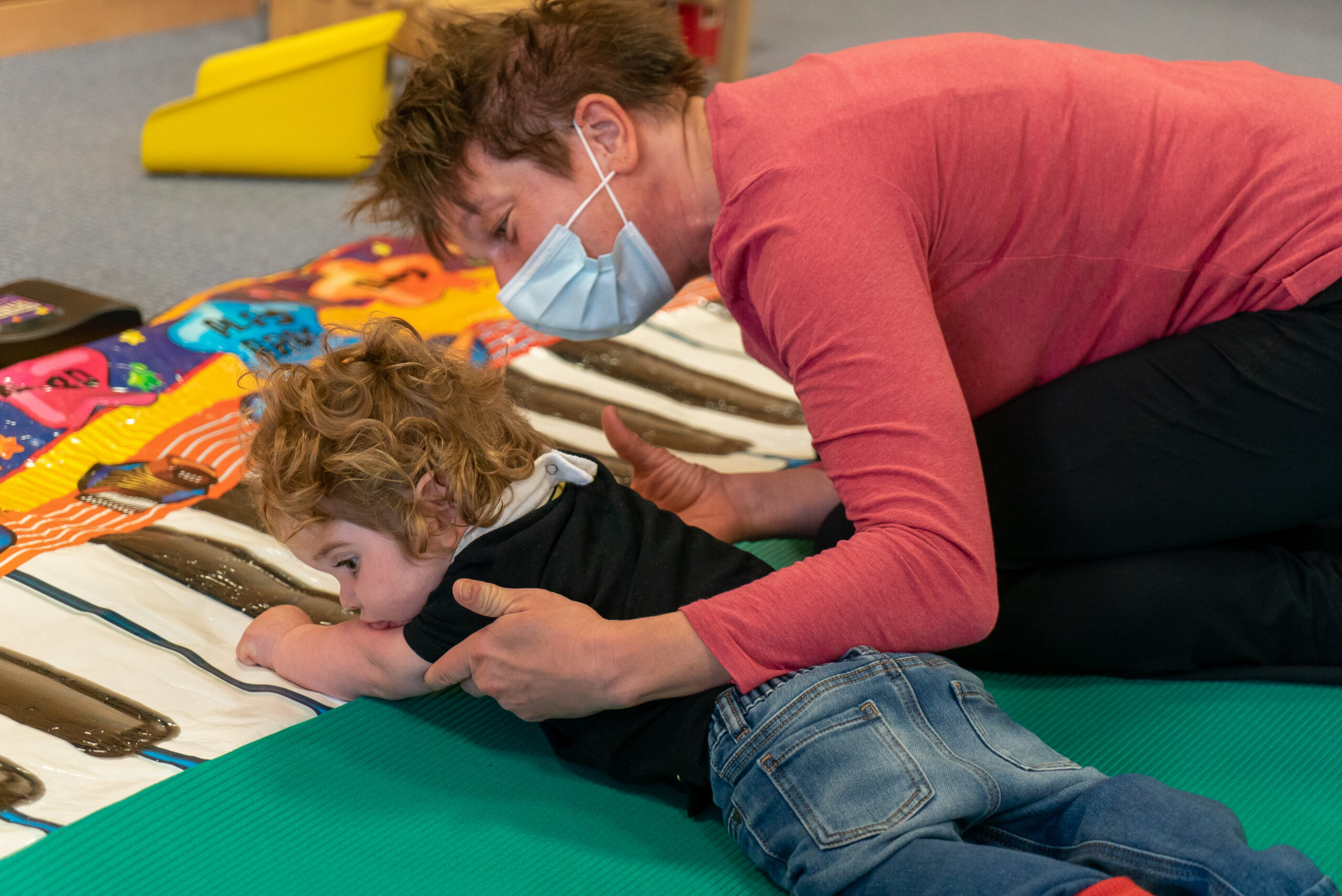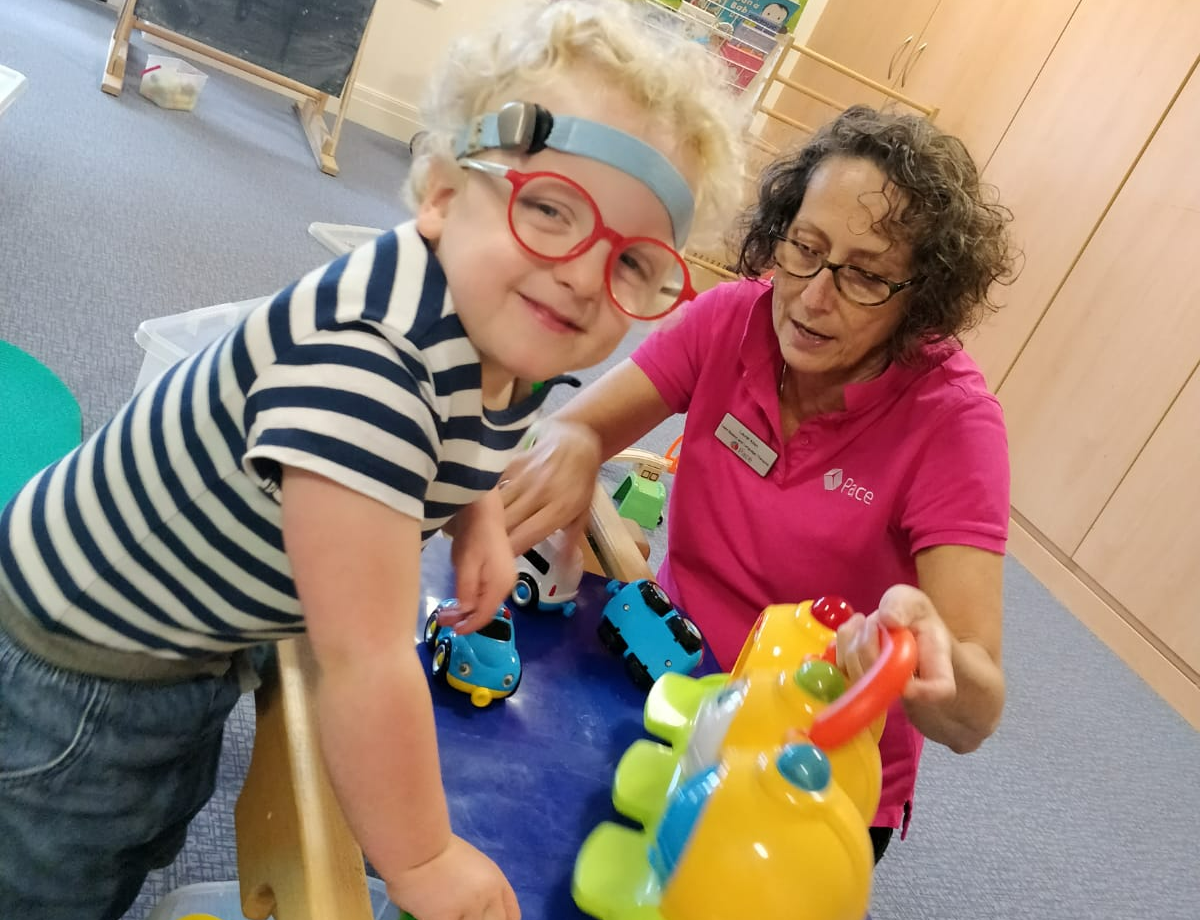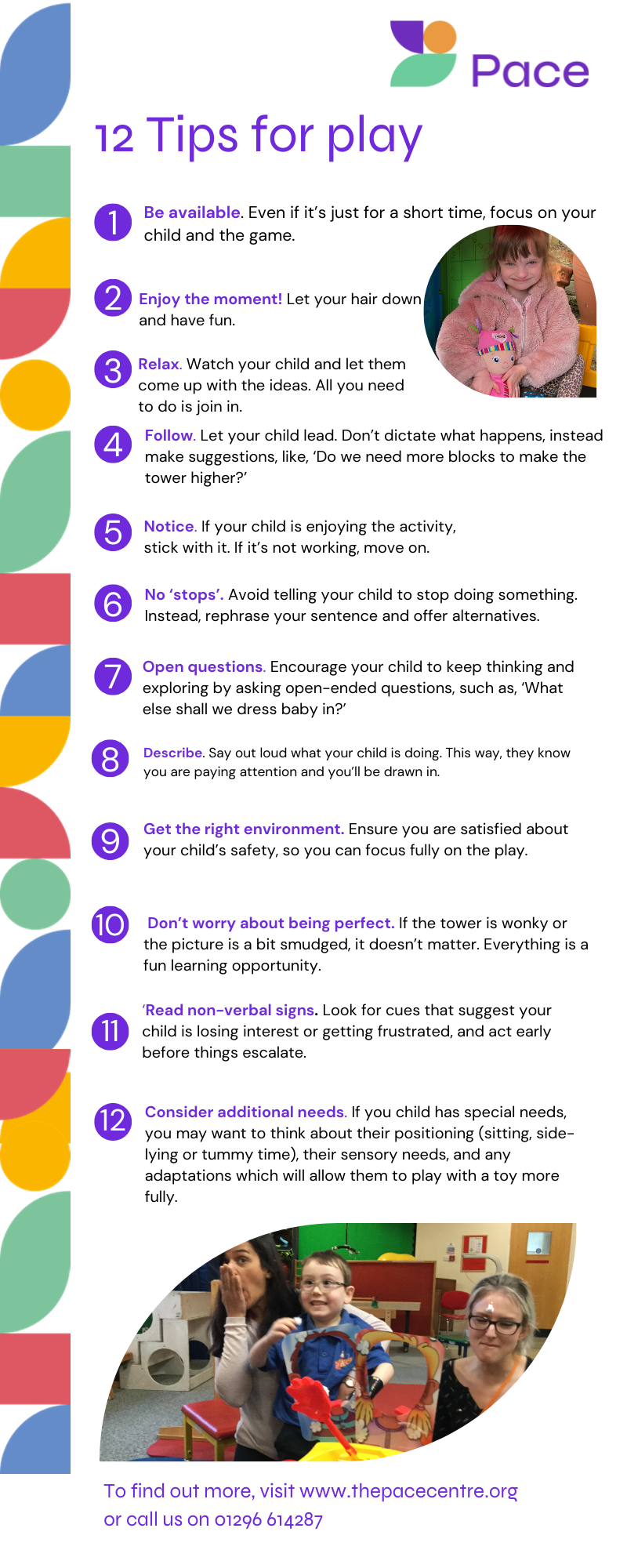12 Tips for Play
How to support your child
Why is play such a serious business?

Why is play such a serious business?
Play is so important for your child. It’s how they will develop and learn. Play grows cognitive, language, physical and social skills, as well as emotional wellbeing. What your child learns through play will be the building blocks for their education, and their role in society.
Do you struggle to know how to play?

Do you struggle to know how to play?
When you play with your child, it builds your relationship. Your child learns to trust you, and knows they are safe with you. However, many of us find it awkward or silly to play. Do you feel a bit self-conscious? Try to remember when you were little and what you enjoyed playing – and follow our 12 tips for play.
12 tips for play

12 tips for play
1) Be available. Even if it’s just for a short time, focus on your child and the game.
2) Enjoy the moment! Let your hair down and have fun.
3) Relax. Watch your child and let them come up with the ideas. All you need to do is join in.
4) Follow. Let your child lead. Don’t dictate what happens, instead make suggestions, like, ‘Do we need more blocks to make the tower higher?’
5) Notice. If your child is enjoying the activity, stick with it. If it’s not working, move on.
6) No ‘stops’. Avoid telling your child to stop doing something. Instead, rephrase your sentence and offer alternatives.
7) Open questions. Encourage your child to keep thinking and exploring by asking open-ended questions, such as, ‘What else shall we dress baby in?’
8) Describe. Say out loud what your child is doing. This way, they know you are paying attention and you’ll be drawn in.
9) Get the right environment. Ensure you are satisfied about your child’s safety, so you can focus fully on the play.
10) Don’t worry about being perfect. If the tower is wonky or the picture is a bit smudged, it doesn’t matter. Everything is a fun learning opportunity.
11) Read non-verbal signs. Look for cues that suggest your child is losing interest or getting frustrated, and act early before things escalate.
12) Consider additional needs. If you child has special needs, you may want to think about their positioning (sitting, side-lying or tummy time), their sensory needs, and any adaptations which will allow them to play with a toy more fully.
2) Enjoy the moment! Let your hair down and have fun.
3) Relax. Watch your child and let them come up with the ideas. All you need to do is join in.
4) Follow. Let your child lead. Don’t dictate what happens, instead make suggestions, like, ‘Do we need more blocks to make the tower higher?’
5) Notice. If your child is enjoying the activity, stick with it. If it’s not working, move on.
6) No ‘stops’. Avoid telling your child to stop doing something. Instead, rephrase your sentence and offer alternatives.
7) Open questions. Encourage your child to keep thinking and exploring by asking open-ended questions, such as, ‘What else shall we dress baby in?’
8) Describe. Say out loud what your child is doing. This way, they know you are paying attention and you’ll be drawn in.
9) Get the right environment. Ensure you are satisfied about your child’s safety, so you can focus fully on the play.
10) Don’t worry about being perfect. If the tower is wonky or the picture is a bit smudged, it doesn’t matter. Everything is a fun learning opportunity.
11) Read non-verbal signs. Look for cues that suggest your child is losing interest or getting frustrated, and act early before things escalate.
12) Consider additional needs. If you child has special needs, you may want to think about their positioning (sitting, side-lying or tummy time), their sensory needs, and any adaptations which will allow them to play with a toy more fully.
